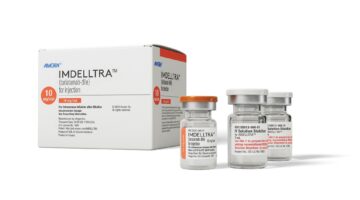- Image via Wikipedia
Just in time for the baby-boomer population to move into nursing homes, recent funding cuts may leave some with closed doors, according to the Associated Press.
Deep federal and state government cuts prompted by the recession led to the elimination of $16 million in nursing home funding over the next 10 years. This Medicare rate adjustment enacted last week by the federal Centers for Medicare and Medicaid Services is on top of previous cuts, according to AP.

With the Rise of AI, What IP Disputes in Healthcare Are Likely to Emerge?
Munck Wilson Mandala Partner Greg Howison shared his perspective on some of the legal ramifications around AI, IP, connected devices and the data they generate, in response to emailed questions.
Last year, 16,000 nursing homes housed 1.85 million people, up from 1.79 million in 2007, according to the U.S. Census Bureau. Already, 24 states have cut spending for nursing home care and health services needed by low income people who are elderly or disabled, the Center on Budget and Policy Priorities released.
But nursing homes may be overstating their problems, writes Ken Terry.
According to this group, reports from the Government Accountability Office (GAO) and the Medicare Payment Advisory Commission (MedPAC) show that Medicare overpays nursing homes billions of dollars a year. MedPAC found that that aggregate profit margins for freestanding nursing facilities exceeded 10 percent for seven years in a row. In 2007, their profit margin was 14.5 percent. Moreover, they didn’t add staff. So the Center for Medicare Advocacy believes that the nursing home operators are pocketing much of the profits, rather than reinvesting them.
Other stories worth a read.

A Deep-dive Into Specialty Pharma
A specialty drug is a class of prescription medications used to treat complex, chronic or rare medical conditions. Although this classification was originally intended to define the treatment of rare, also termed “orphan” diseases, affecting fewer than 200,000 people in the US, more recently, specialty drugs have emerged as the cornerstone of treatment for chronic and complex diseases such as cancer, autoimmune conditions, diabetes, hepatitis C, and HIV/AIDS.
- A Nobel for Telomerase (In the Pipeline)
- 3 Americans share 2009 Nobel medicine prize (Associated Press)
- Obama reaches past Congress for health care support (New York Times)
- Kendle Appoints John Needham executive director and global head, patient enrollment strategy (PR Newswire)
- A Conversation with . . . Frederick A. Robertson of TomoTherapy (Image)
- Kimberly-Clark snags Baylis pain-management unit (Modern Healthcare)
- Do hospitals need to enter the world of social media? (HospitalImpact)
- Cardinal Health names Mark Blake to lead strategy, corporate development (Cardinal)
- Milwaukee Medical Group names Mayo Executive as COO (Hospital Review Magazine)
- University of Chicago receives $42 million in stimulus funds for biological and medical research (University of Chicago)












